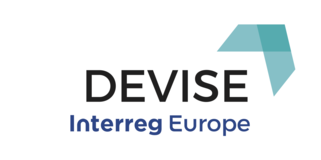DEVISE project partner Seinäjoki University of Applied Sciences in South Ostrobothnia (Finland) has developed an Action Plan to support the digital transformation of manufacturing and food industries, considered key sectors in the region.
With this plan, SEAMK aims to strengthen the implementation of regional action programs and strategies, in particular, the Regional Strategy of South Ostrobothnia. Finnish partners highlight the three main actions:
Action 1 - Food Living Labs connecting people
The objectives of this project are to create a regional permanent innovation cluster, with strong business cooperation as key elements; a user-oriented food cluster for SMEs, under the Living Lab concept; and the roadmap for increasing the level of activity. “The implementation of the project consists of influencing and communicating, building a living lab network, identifying technologies and territorial renewal of the operational environment”, explains Juha Palomäki, Technology Agent at SEAMK and DEVISE project partner.
Action 2 – MyMachine
This second action will contribute to the South Ostrobothnia Provincial Programme (2018-2021): Education, competence, and lifelong learning. The objective is to improve services to support transitions and educational equality.
On the one hand, the project takes into account the future skills. “Knowledge and the emergence of new innovations is a critical factor for the success of the province”, adds DEVISE partner. Adequate competence is ensured by a functioning training system. However, its basis must provide a high-quality basic education for everyone as a commuter service, ensuring basic skills and general education. On the other hand, inspiring career paths will guide the action. South Ostrobothnia operates the ‘YES Entrepreneurship Education Expert Network’ as part of ‘Opinlakeus network of educational institutions’. It gathers 30 schools from the South Ostrobothnia region, including, high schools, vocational colleges or adult education organizations. “The network supports implementation of entrepreneurial education and introduces new ways of entrepreneurial and professional cooperation”.
Throughout this whole process, the children, pupils and students can use the expertise and support of a wide range of local corporations and organizations that share a common view on STE(A)M, creativity in education, entrepreneurship, open education, project-based learning and maker centred learning. It is based on a 3-step methodology:
1. Idea: children from elementary / kindergarten schools invent their own ‘Dream Machine’. Anything goes. The main criterion is that it’s relevant for the child who really, really wants it.
2. Concept: higher education students (e.g., product design, game design students, engineers, architecture or art students) propose one or more solutions to design those machines. The best solutions – according to the children – then are selected and further developed.
3. Working prototype: technical secondary school students build real prototypes of those machines, assisted by the kids who invented them and the higher education students who designed them.
Action 3 – Training 4.0: XR
This project supports the further development of the Digital Factory concept from the perspective of XR technologies. “Virtual training environments provide a completely new way to train your own staff or customers”, states Palomäki. The virtual model allows the training event to be implemented more than once and there is no cost to errors. Furthermore, many dangerous tasks can be practised virtually at first. “In the virtual world, the environment draws the user within, and even if the training is done virtually, a memory trace of the movements made as a result of the correct exercise is still left on the body. In this way, learning takes place quickly in a virtual environment and various incidents are minimized”, concludes our partner.
Find here SEAMK’s Action Plan!











